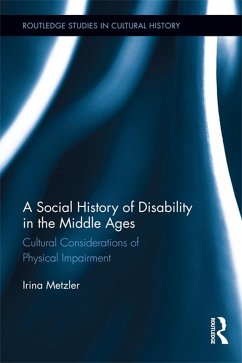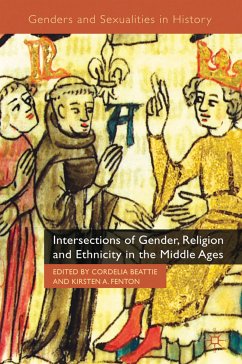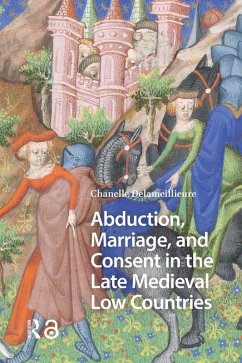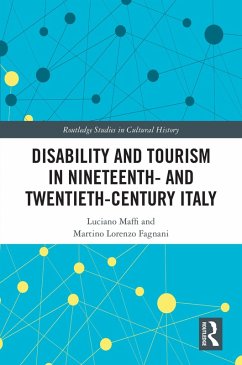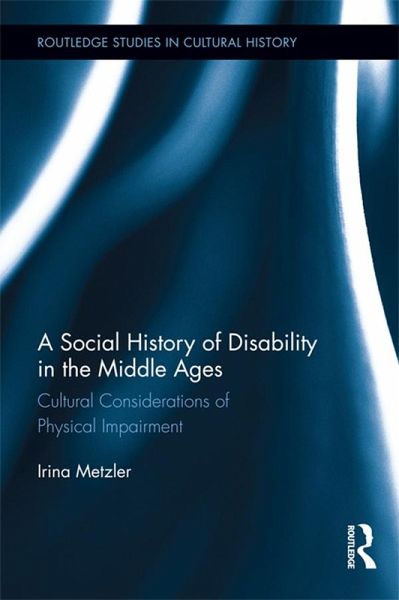
A Social History of Disability in the Middle Ages (eBook, PDF)
Cultural Considerations of Physical Impairment
Versandkostenfrei!
Sofort per Download lieferbar
46,95 €
inkl. MwSt.
Weitere Ausgaben:

PAYBACK Punkte
23 °P sammeln!
What was it like to be disabled in the Middle Ages? How did people become disabled? Did welfare support exist? This book discusses social and cultural factors affecting the lives of medieval crippled, deaf, mute and blind people, those nowadays collectively called "disabled." Although the word did not exist then, many of the experiences disabled people might have today can already be traced back to medieval social institutions and cultural attitudes.This volume informs our knowledge of the topic by investigating the impact medieval laws had on the social position of disabled people, and conver...
What was it like to be disabled in the Middle Ages? How did people become disabled? Did welfare support exist? This book discusses social and cultural factors affecting the lives of medieval crippled, deaf, mute and blind people, those nowadays collectively called "disabled." Although the word did not exist then, many of the experiences disabled people might have today can already be traced back to medieval social institutions and cultural attitudes.
This volume informs our knowledge of the topic by investigating the impact medieval laws had on the social position of disabled people, and conversely, how people might become disabled through judicial actions; ideas of work and how work could both cause disability through industrial accidents but also provide continued ability to earn a living through occupational support networks; the disabling effects of old age and associated physical deteriorations; and the changing nature of attitudes towards welfare provision for the disabled and the ambivalent role of medieval institutions and charity in the support and care of disabled people.
This volume informs our knowledge of the topic by investigating the impact medieval laws had on the social position of disabled people, and conversely, how people might become disabled through judicial actions; ideas of work and how work could both cause disability through industrial accidents but also provide continued ability to earn a living through occupational support networks; the disabling effects of old age and associated physical deteriorations; and the changing nature of attitudes towards welfare provision for the disabled and the ambivalent role of medieval institutions and charity in the support and care of disabled people.
Dieser Download kann aus rechtlichen Gründen nur mit Rechnungsadresse in A, B, BG, CY, CZ, D, DK, EW, E, FIN, F, GR, HR, H, IRL, I, LT, L, LR, M, NL, PL, P, R, S, SLO, SK ausgeliefert werden.




